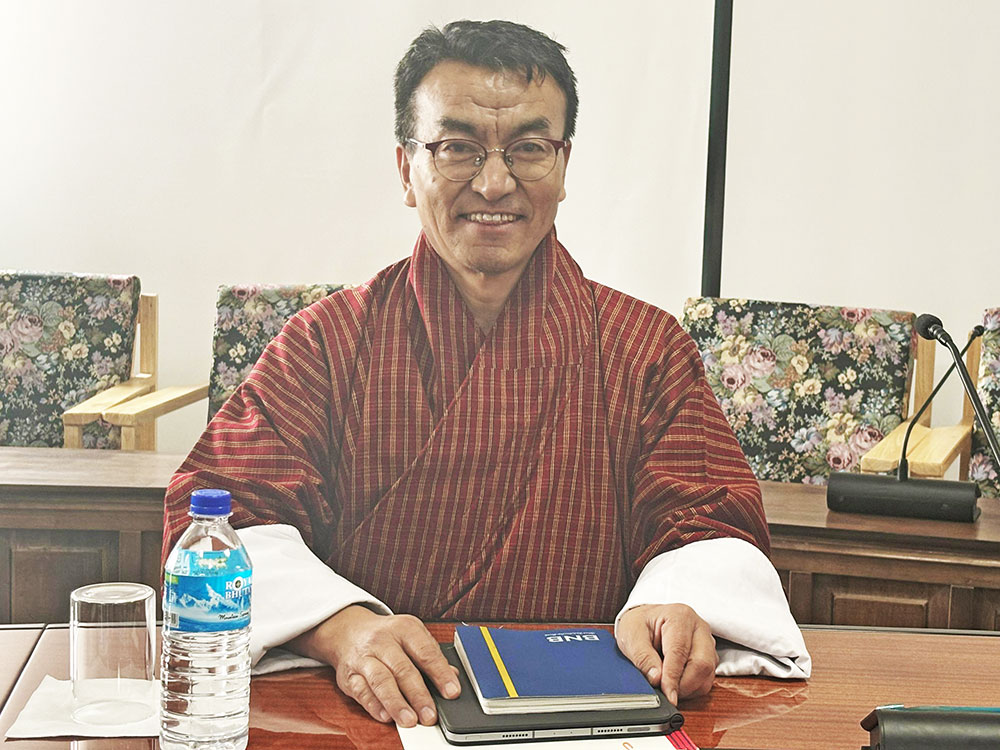…FIs to decide on deferment
Thukten Zangpo
There will be no blanket loan deferment after June this year and the financial institutions (FIs) will decide the deferment based on their assessment, Finance Minister Lekey Dorji said during yesterday’s third Meet-the-Press session in Thimphu.
“Banks know their customers the best, and the Royal Monetary Authority (RMA) and the government should not directly intervene, unless it is genuinely required,” he said.
The minister said that the banks and customers would assess the situation and make an informed decision as to how to carry the account forward.
The loan deferment under the monetary measure IV ends by June 30 this year.
The businesses affected from the Covid-19 pandemic received loan deferments from almost four years from April 2020.
The FIs have notified their customers with loan deferral accounts to meet their account managers and plan how to proceed about after June 2024.
While the private sector, represented by the Bhutan Chamber of Commerce and Industry, is planning to submit recommendations to the government asking for loan deferment for another two to three years and incentives for those who do not want to continue the deferment.
All FIs through the Financial Institutions Association of Bhutan are working to have a unified standard assessment criterion, the minister said.
The FIs have to develop their own assessment criteria to handle loan deferral, including one-to-one client assessment, detailed standard operating procedures, and government risk and portfolio analysis.
The minister said that the FIs would also explore options such as loan restructuring, rescheduling, fixed equated installment facility, and innovative financing. “The interest accrued so far will not be capitalised.”
He added that the objective of the central bank and the government is to save everyone involved and not destabilise the banks, bankrupt the businesses or to harm the economy.”
The minister said that the loan deferment was only a temporary solution, and experts from the International Monetary Fund, World Bank, Asian Development Bank, and local economists had advised against continuing loan deferment.
He said that the Covid-19 pandemic had severely affected the economy and loan deferral became the government’s concern after taking over. The ministry is working closely with the central bank, taking guidance from the prime minister, the minister added.
The macro-economic coordination and technical committee with the experts from the RMA and finance ministry had conducted studies on the loan deferment.
The minister identified two main issues with the continuation of the loan deferral—the FIs showing the signs of cash flow disruptions, which would expose them to liquidity risks, constraining their capacity to create credits and borrowers over leveraging as interest continues to accrue during the deferral period, further risking their ability to repay and leading to non-performing loans.
He added that the study by the macro-fiscal coordination committee found that loan portfolios that were deferred may not require further deferral beyond June 2024 but some sectors may need it until December this year.
The Committee’s findings also indicated that if the deferment continues beyond 2024, it would dampen the economy, the minister said.
Out of 149, 065 loan accounts amounting to a total loan of Nu 215.88 billion with FIs, 12, 941 loan accounts amounting to Nu 56.5 billion have been deferred until June this year.
This accounted for 8.75 percent of the loan accounts and 26.2 percent of the loan amount deferred.
Economic Stimulus Programme (ESP)
Lyonpo Lekey Dorji said that the Cabinet sub-committee was formed to study the investment areas for the economic stimulus programme (ESP).
However, the investment areas are not yet finalised.
The government of India is supporting Bhutan’s Nu 15 billion ESP.
The minister said that the government’s focus was on increasing productive sectors, reducing imports, and improving the country’s trade deficit and current account balance.
“We are looking at agriculture, livestock, tourism, cottage and small industry, among others. Most of the interventions will be output-based rather than input-based,” he said.


